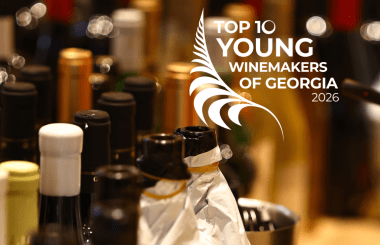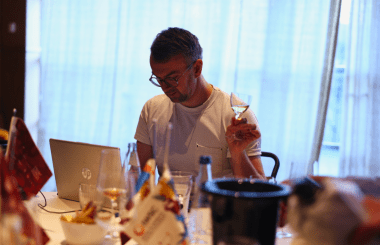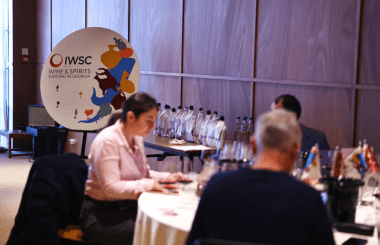Tracing the Wine Road: Georgia’s 8,000-Year Winemaking Legacy
This November, the IWSC will once again return to Georgia for our Wine & Spirits Judging in the country, hosted in partnership with Gurjaani Wine Festival and National Wine Agency of Georgia. Renowned as the birthplace of wine, Georgia offers an unparalleled heritage that continues to shape global conversations about viticulture and winemaking.
8,000 Years of History
Scientific evidence shows that winemaking in Georgia dates back to 6,000–5,800 BCE, giving the country an unbroken winemaking tradition of around 8,000 years. Located at the crossroads of Europe and Asia, Georgia’s identity has been shaped by resilience and cultural continuity. Through centuries of upheaval, wine has remained at the heart of Georgian life, a constant presence in family traditions, feasts, and celebrations.
Georgia’s Wine Regions
Georgia’s varied geography, from the Black Sea coast to the slopes of the Caucasus Mountains, creates distinctive microclimates that give rise to diverse wine styles. Among its many Protected Designations of Origin (PDOs), four key regions stand out:
Kakheti (East) – Georgia’s largest and most important wine region, producing around 70% of the country’s wine. Known for bold Saperavi reds and aromatic whites such as Rkatsiteli and Mtsvane.
Kartli (Centre) – Celebrated for refined sparkling wines and balanced still wines. Chinuri and Goruli Mtsvane are local highlights.
Imereti (West) – A cooler region producing fresher, lighter wines, often from Tsolikouri, Tsitska and Krakhuna.
Racha (Northwest) – A small but prestigious region, famous for semi-sweet reds made from Aleksandrouli and Mujuretuli.
Other notable areas include Guria, Adjara, Lechkhumi and Samegrelo, each contributing unique expressions and rare indigenous grapes.
Styles and GrapesToday, most Georgian wine is produced and aged in stainless steel or oak, in line with modern European techniques. Yet Georgia also preserves its distinctive qvevri tradition, where wines are fermented and aged in large clay vessels buried underground, a method recognised by UNESCO as an Intangible Cultural Heritage of Humanity. Though qvevri wines represent less than 10% of national production, they have inspired winemakers worldwide and given rise to Georgia’s most celebrated category: amber wine.
With over 500 indigenous grape varieties, Georgia offers a remarkable diversity of styles. Key varieties include:
Saperavi – The country’s best-known red grape, and a rare teinturier variety, with naturally pigmented flesh and juice. Adaptable and resilient, it produces deeply coloured, age-worthy wines ranging from fresh berry-driven expressions to powerful, structured reds.
Rkatsiteli – Georgia’s most planted and most ancient white grape. Its name comes from “rka” (stem) and “tsiteli” (red), referring to its red-hued stems at ripeness. Highly versatile, it yields wines in modern, amber, sparkling, sweet and even fortified styles.
Mtsvane – A fragrant white grape, often blended with Rkatsiteli to add freshness and floral lift.
Tsolikouri – Popular in western Georgia, producing elegant, lighter-bodied whites with refreshing acidity.
Chinuri, Tsitska, Aleksandrouli and Mujuretuli – Regional varieties that bring further depth to Georgia’s wine story.
A Dynamic Modern Industry
Following the collapse of the Soviet Union, Georgia’s wine industry entered a new era of rediscovery. Today, the country boasts nearly 2,000 registered wineries, with over 400 exporting worldwide. From large-scale producers to small artisanal estates, Georgian winemakers are blending ancient heritage with modern expertise. A new generation of Georgians are driving quality forward and ensuring their wines continue to captivate global audiences.
Join Us in Georgia
The IWSC is proud to continue its journey in Georgia this November, honouring the country’s unparalleled winemaking heritage. The IWSC 2026 Wine Judging in Georgia will take place on 25th to 28th November 2025, with the results announced on 2nd December. Entries will open in the coming few weeks, keep an eye out for news here, on our social media channels and in your inbox.



